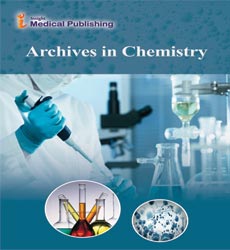The Anti-Sepsis Effect of Isocorydine Screened from Guizhou Ethnic Medicine is Closely Related to Upregulation of Vitamin D Receptor Expression and Inhibition of NFkB p65 Translocation into the Nucleus
Hong Zhou*
Zunyi Medical University, People’s Republic of China
Received Date: 2022-08-11 | Accepted Date: 2022-08-15 | Published Date: 2022-08-29
Abstract
Background: The anti-inflammatory application of Guizhou ethnic medicine in the Karst area of China is mainly based on folk medicine experience, and there has been a lack of systematic research, leading to limited application of Guizhou ethnic medicine. Purpose: To evaluate the anti-inflammatory effects of compounds extracted from Guizhou ethnic medicine in the Karst area and investigate their molecular mechanisms. Methods and Results: Preliminarily, the anti-inflammatory effects of 181 compounds extracted from Guizhou ethnic medicine were screened in lipopolysaccharide (LPS)-stimulated peritoneal macrophages and the 41 compounds with anti-inflammatory effects were selected. Then, these 41 compounds with anti-inflammatory effects were investigated for their druggability and 18 compounds were selected. Thirdly, compound Hx-150, named isocorydine, was selected as the candidate compound. In vitro and in vivo, isocorydine inhibited LPS-induced TNF-α and IL-6 release from LPS-treated mouse peritoneal macrophages. Isocorydine decreased TNF-α, IL-6, and IL-1β levels in the blood, lung, and spleen, and ameliorated lung tissue damage. Mechanistically, isocorydine had no effect on the mRNA expressions and protein levels of Tlr4, Myd88, and Traf6. Isocorydine also had no effect on the expression of RelA (encoding NFκB p65) mRNA, but inhibited phosphorylation of IκBα and NFκB p65 in the TLR4-mediated signaling pathway. Furthermore, isocorydine increased the cytoplasmic level of NFκB p65 and decreased its nuclear level in LPS-treated macrophages. Importantly, isocorydine upregulated Vdr mRNA (encoding the vitamin D receptor) expression and increased the nuclear VDR protein level. Conclusion: Many compounds from Guizhou ethnic medicine had potential anti-inflammatory activities. Among them, isocorydine has a strong anti-sepsis effect, which is tightly related to its upregulation of VDR expression and inhibition of NFκB p65 translocation into the nucleus, leading to reduced pro-inflammatory cytokines release and protection for LPS-challenged mice.
Open Access Journals
- Aquaculture & Veterinary Science
- Chemistry & Chemical Sciences
- Clinical Sciences
- Engineering
- General Science
- Genetics & Molecular Biology
- Health Care & Nursing
- Immunology & Microbiology
- Materials Science
- Mathematics & Physics
- Medical Sciences
- Neurology & Psychiatry
- Oncology & Cancer Science
- Pharmaceutical Sciences
